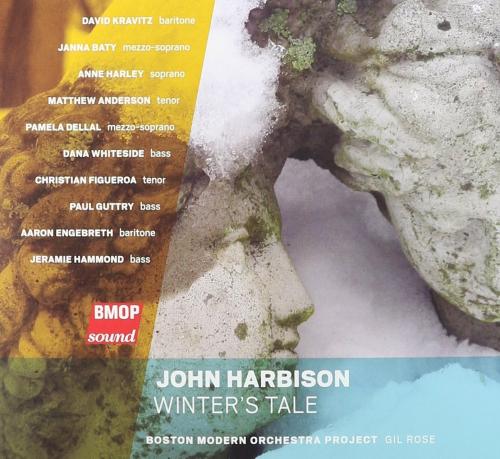
(c) Jonathan Blumhofer
Harbison’s Winter’s Tale was a labor of love, written between 1972 and 1974 without a commission or promise of performance. It was first heard in a workshop setting in San Francisco in 1979 and Act 2 received a concert performance conducted by Craig Smith a decade later, but that was it. Though Harbison revised the score in 1991, it wasn’t played in full again until the Boston Modern Orchestra Project (BMOP) programmed Winter’s Tale in 2009. Talk about a long time coming.
So, was it worth the wait? In many ways it was. There are passages that are strikingly fresh and invigorating, the music of a young composer exploring new sonic possibilities and viewing the past through a kind of refracted musical lens. This is especially true of the second act, for which Harbison wrote music with a vaguely Renaissance-ish tint that is positively haunting—listen to the first scene, in which Perdita and Florizel (the respective offspring of Kings Leontes and Polixenes) court, for perhaps the best examples of this.
Other passages, though, are less defined, particularly in the first act, which opens strongly with the first of six “Dumbshows” (mimed scenes with musical accompaniment) before turning to some of the more generic conventions of mid-twentieth-century, American opera: disjunct vocal writing, dissonant harmonies, and lots of instrumental activity that doesn’t always add up to much. It’s all very colorful (and engrossing for at least a little while), but none of it is nearly as compelling as the greatest operatic adaptations of Shakespeare: Verdi’s Otello and Falstaff and Britten’s A Midsummer Night’s Dream.
Even if it’s not a perfect opera, though, Winter’s Tale is an important contribution to the genre, and it gets a knockout performance on this album. Conductor Gil Rose draws an energetic, prismatic performance from BMOP, and the singing is uniformly excellent. The cast, led by David Kravitz (as Leontes) and the magnificent Janna Baty (portraying his wife, Hermione) leave little to be desired; among the other important roles that stand out are Matthew Anderson (as Florizel), Aaron Engebreth (as Polixenes), and Dana Whiteside (in the allegorical role of Time).


